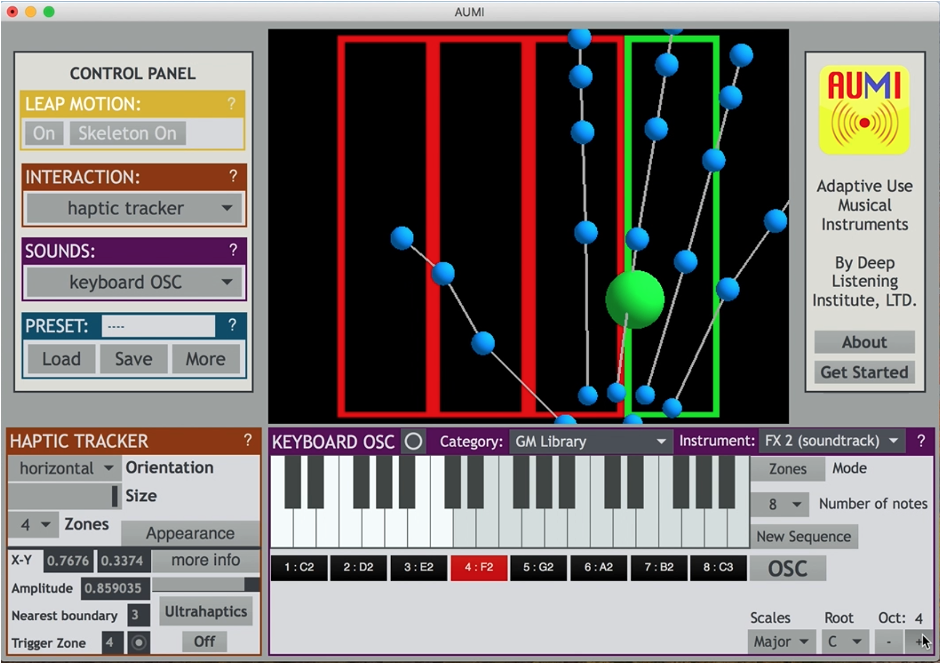Description:
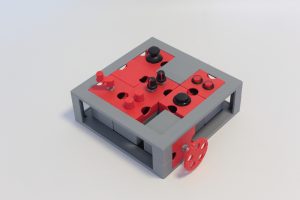
Fostering Inclusion in Music: Perspectives from practitioners and researchers in music therapy and technology
Date : Tuesday, March 30, 2021
Time/Duration : 5:30 – 6:30 p.m. ET.
Topic/Title: Fostering Inclusion in Music: Perspectives from practitioners and researchers in music therapy and technology
Brief description
Music therapists and technology researchers come together to give an overview of the current state of each field and to share projects from their respective fields.
Detailed Schedule:
5:30 – 6:00pm
Music therapy: What for and how is it done today. (8 min)
Caitlin Matters and Danyel Tynan
Use and adaptation technology in the music therapy context. (4 min)
Caitlin Matters and Danyel Tynan
Music technology: Different interactions with sound through technology (beyond acoustic instruments). (8min)
Overview of Accessible Digital Music Instruments (ADMIs). (7 min)
Dr Emma Frid
The Adaptive Use Musical Instruments (AUMI) project. (4 min)
Dr John Sullivan
6:00 – 6:30pm
Open discussion about inclusion in music: connecting music therapists and researchers in music technology
Biography
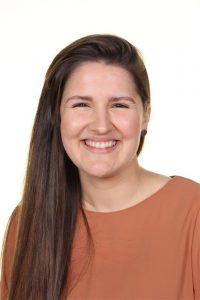
Caitlin Matters completed her studies in music therapy at the University of Melbourne in 2018. Caitlin works in a school with children and young people with physical disabilities and complex health needs where she shares her passion for exploring ways that music can promote wellbeing and connection between students, staff and the wider school community.
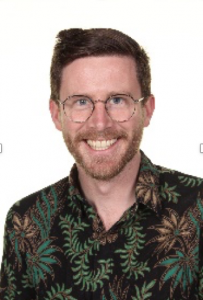
Daniel Tynan is the senior music therapist at Nepean School in Victoria, a school for children with physical disabilities aged 5-18. He has previously worked at Austin Health in oncology and community mental health settings. Daniel plays keyboards in Melbourne funk band Headphones Jones and sings with international touring choir Exaudi.
 Emma Frid received her PhD in Sound and Music Computing from the Division of Media Technology and Interaction Design at KTH Royal Institute of Technology in 2020. Her thesis “Diverse Sounds – Enabling Inclusive Sonic Interaction” focused on how Sonic Interaction Design can be used to promote inclusion and diversity in music-making. She is currently doing a 3 year postdoc on Accessible Digital Musical Instruments (ADMIs) at the STMS Laboratory at IRCAM, were she is working in the COSMOS: Computational Shaping and Modeling of Musical Structures project, run by Prof. Elaine Chew. Emma is the author of the first full review on Accessible Digital Musical Instruments, published in 2019. Her research interests include inclusive music technology and practice, multimodal interface design, Sonic Interaction Design (SID), Human Computer Interaction (HCI), human-AI interaction, and haptics.
Emma Frid received her PhD in Sound and Music Computing from the Division of Media Technology and Interaction Design at KTH Royal Institute of Technology in 2020. Her thesis “Diverse Sounds – Enabling Inclusive Sonic Interaction” focused on how Sonic Interaction Design can be used to promote inclusion and diversity in music-making. She is currently doing a 3 year postdoc on Accessible Digital Musical Instruments (ADMIs) at the STMS Laboratory at IRCAM, were she is working in the COSMOS: Computational Shaping and Modeling of Musical Structures project, run by Prof. Elaine Chew. Emma is the author of the first full review on Accessible Digital Musical Instruments, published in 2019. Her research interests include inclusive music technology and practice, multimodal interface design, Sonic Interaction Design (SID), Human Computer Interaction (HCI), human-AI interaction, and haptics.
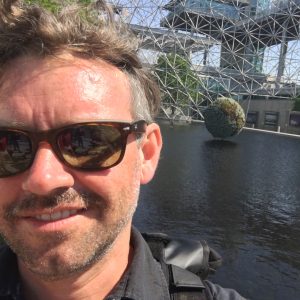
John Sullivan is a music technology researcher whose work focuses on user-centered design of new instruments and technologies for music and multimedia performance. With a background in music performance and human-computer interaction, his work includes user research, participatory design workshops and collaborations with musicians to better understand and support professional performance practices. Additionally he has conducted research in the areas of motion capture analysis of live performance, haptic interaction, and accessible digital musical instrument design.
Under the name Johnny Venom, he has been a part of multiple indie rock groups from the northeastern US. He released several albums with various projects and has toured extensively in the US, Canada, and Europe.
 Marcelo Wanderley: Professor in Music Technology International Chair – Inria Lille, Nord Europe Centre for Interdisciplinary Research in Music Media and Technology (CIRMMT)
Marcelo Wanderley: Professor in Music Technology International Chair – Inria Lille, Nord Europe Centre for Interdisciplinary Research in Music Media and Technology (CIRMMT)
Electrical Engineering – UFPR (Brazil), 1988
M.Eng in Electrical Engineering – UFSC (Brazil), 1992
Ph.D. in Acoustics, Signal Processing and Computer Science Applied to Music, Université Paris VI (France), 2001

